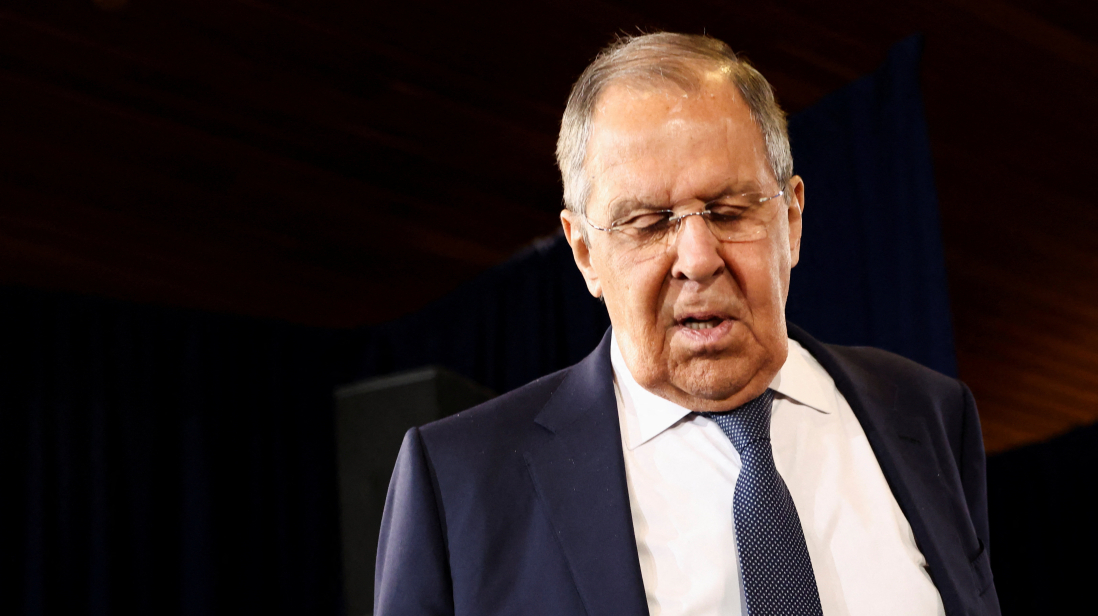Australia refuses to assist IS-linked citizens in Syrian camp
Australian Prime Minister Anthony Albanese said his government would not assist Australian families of suspected Islamic State (IS) militants return h...

Russia has proposed that members of the United Nations Security Council, including the U.S., China, and Russia, act as security guarantors for Ukraine, ensuring its neutrality and non-nuclear status, according to Russian Foreign Minister Sergei Lavrov in an interview on 24 August.
Lavrov’s comments were made during an interview with NBC News’ “Meet the Press,” where he discussed the ongoing security concerns between Russia and Ukraine.
He reiterated Russian President Vladimir Putin’s position that Ukraine must remain neutral, not pursue NATO membership, and cede control over the eastern Donbas region.
Lavrov added that these discussions had been part of the now-stalled negotiations that took place in Istanbul in 2022.
During those talks in March, Ukraine proposed its permanent neutrality in exchange for security guarantees from major powers, including the five permanent members of the UN Security Council (Russia, the U.S., China, the UK, and France), with the potential inclusion of Germany and Türkiye.
The Istanbul negotiations were one of the first attempts to find a diplomatic solution after Russia’s invasion of Ukraine.
Lavrov argued that these powers should guarantee Ukraine’s security, with an emphasis on Ukraine being non-aligned with any military bloc.
Lavrov made it clear that Russia would never accept Ukraine’s NATO membership, which he said posed a direct threat to Russian security. He also highlighted the issue of protecting Russian speakers in Ukraine, as well as a need for territorial discussions.
Putin has repeatedly demanded that Ukraine renounce its ambitions to join NATO and accept Russia's territorial claims over Donbas and Crimea. He has also stated that Ukraine must maintain neutrality, meaning it should not align with any military bloc such as NATO.
The remarks underscore the persistent tensions between the two countries, despite earlier efforts for negotiation.
Iran’s Supreme National Security Council Secretary Ali Larijani said the United States could evaluate its own interests separately from those of Israel in ongoing negotiations between Tehran and Washington.
U.S. Secretary of State Marco Rubio on Sunday (15 February) called it “troubling” a report by five European allies blaming Russia for killing late Kremlin critic Alexei Navalny using a toxin from poison dart frogs.
Cuba’s fuel crisis has turned into a waste crisis, with rubbish piling up on most street corners in Havana as many collection trucks lack enough petrol to operate.
Norway is holding a commanding lead in the medal standings with 12 golds and a total of 26, with Italy having an historic performance on home soil on the ninth day of the Milano-Cortina Winter Olympics on Sunday (15 February).
Iran is pursuing a nuclear agreement with the U.S. that delivers economic benefits for both sides, an Iranian diplomat was reported as saying on Sunday (15 February), days before a second round of talks between Tehran and Washington.
Australian Prime Minister Anthony Albanese said his government would not assist Australian families of suspected Islamic State (IS) militants return home from a Syrian camp.
The Pentagon has threatened to designate artificial intelligence firm Anthropic as a “supply chain risk” amid a dispute over the military use of its Claude AI model, according to a report published Monday.
Representatives of Ukraine, Russia and the United States are set to meet in Geneva for a third round of trilateral negotiations aimed at ending the nearly four-year war, even as both sides intensify military pressure on the ground.
Canadian Prime Minister, Mark Carney, announced on 16 February that the Honourable Janice Charette has been appointed as the next Chief Trade Negotiator to the United States. She's been tasked with overseeing the upcoming review of the Canada-United States-Mexico Agreement (CUSMA).
Cuba’s fuel crisis has turned into a waste crisis, with rubbish piling up on most street corners in Havana as many collection trucks lack enough petrol to operate.
You can download the AnewZ application from Play Store and the App Store.

What is your opinion on this topic?
Leave the first comment